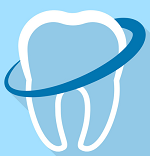Introduction
Having a cracked or chipped tooth can be a painful and distressing experience. Whether it’s due to an accident, biting down on something hard, or even grinding your teeth, it’s important to know what immediate steps you can take to alleviate discomfort and prevent further damage. In this blog post, we will discuss some first aid measures you can take when faced with a cracked or chipped tooth.
Assess the Damage
When you discover a cracked or chipped tooth, it’s important to assess the extent of the damage. Is it a minor chip or a more severe crack? Take a close look at the affected tooth to determine the next steps.
Rinse Your Mouth

After assessing the damage, rinse your mouth with warm saltwater. This will help clean the area and reduce the risk of infection. Gently swish the saltwater around your mouth for about 30 seconds before spitting it out.
Control the Bleeding
If your cracked or chipped tooth is causing bleeding, apply gentle pressure with a clean piece of gauze or a damp tea bag. This will help control the bleeding. If the bleeding persists or is severe, seek immediate dental attention.
Manage Pain and Swelling
If you’re experiencing pain or swelling due to the cracked or chipped tooth, you can take over-the-counter pain relievers like ibuprofen or acetaminophen. Applying a cold compress to the affected area can also help reduce swelling and alleviate discomfort.
Avoid Eating Hard Foods
While waiting for dental treatment, it’s crucial to avoid eating hard or crunchy foods that can further damage the tooth. Stick to soft foods and avoid chewing on the side of the mouth where the cracked or chipped tooth is located.
Cover Sharp Edges
If the cracked or chipped tooth has sharp edges that are causing irritation or discomfort, you can temporarily cover them with dental wax or sugarless chewing gum. This will help protect your tongue and cheeks from getting injured.
Use Dental Cement
If you have dental cement at home, you can use it to temporarily fill the crack or chip in your tooth. Dental cement can be found at most pharmacies and is easy to apply. However, this is only a temporary solution, and you should still seek professional dental care.
Summary
Dealing with a cracked or chipped tooth can be a dental emergency that requires immediate attention. Here are some first aid steps you can take:
- Rinse your mouth with warm water to clean the area.
- If there is bleeding, apply gentle pressure with a clean cloth or gauze.
- If you experience pain or swelling, apply a cold compress to the affected area.
- Take over-the-counter pain relievers if necessary, following the recommended dosage.
- Try to save any broken tooth fragments and keep them moist in milk or saliva.
- Contact your dentist as soon as possible to schedule an appointment.
Remember, these first aid measures are temporary solutions and it is crucial to seek professional dental care to properly a web ssess and treat the cracked or chipped tooth. Ignoring the issue or delaying treatment can lead to further complications and potential infections.
- Q: What should I do if I have a cracked or chipped tooth?
- A: If you have a cracked or chipped tooth, it is important to see a dentist as soon as possible. In the meantime, you can rinse your mouth with warm water and apply a cold compress to reduce swelling.
- Q: Can I eat or drink with a cracked or chipped tooth?
- A: It is best to avoid eating or drinking anything too hot or cold, as well as hard or sticky foods, until you can see a dentist. Stick to soft foods and lukewarm liquids to prevent further damage.
- Q: Is it necessary to see a dentist for a cracked or chipped tooth?
- A: Yes, it is important to see a dentist for a cracked or chipped tooth. Only a dentist can properly assess the damage and provide appropriate treatment to prevent further complications.
- Q: How can I manage the pain from a cracked or chipped tooth?
- A: Over-the-counter pain relievers can help manage the pain temporarily. Avoid applying any numbing gels or aspirin directly to the tooth as it may cause irritation.
- Q: Can a cracked or chipped tooth heal on its own?
- A: Unfortunately, a cracked or chipped tooth cannot heal on its own. It requires professional dental treatment to prevent further damage and potential infection.

Hello, I’m Brock Pattison, a dedicated professional in the field of Gum Disease Prevention and Oral Health. With a passion for helping individuals achieve optimal oral hygiene, I am committed to providing valuable information and resources to promote healthy smiles.



